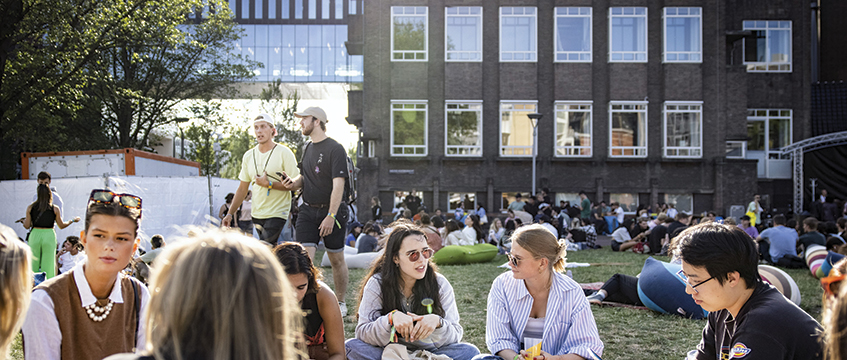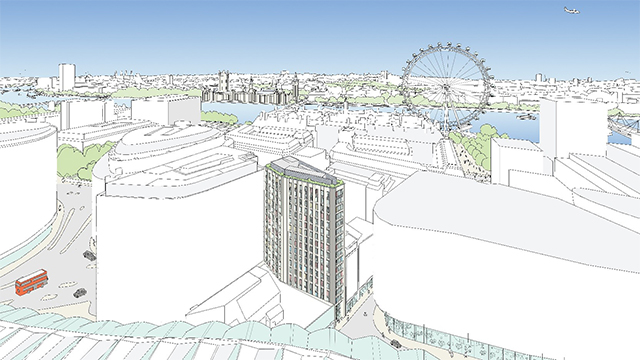Paul Collins shares his advice for first-year property students in the first term or first semester of their course.
It is late November and your new course is well under way. Pretty much all teaching is now back to face-to-face rather than online and, as such, attendance at lectures runs at perhaps 70-85%.
This is, in part, because most universities now also offer recorded copies of lectures. This enables you to watch a lecture in your own time – but, if that is your approach, make sure you do.
Of as much, and in many ways more, importance is physically attending seminars and tutorials, as these are not normally online.
These are there to provide an opportunity to get to know your lecturer, ask questions about what you should be learning and resolve things you do not understand. There is lots of evidence of a correlation between strong attendance and engagement and good results at the end of the first and through to the final year.
As the saying goes, “80% of success is turning up”.
‘First year/first semester doesn’t count’
For most, if not all, property-based undergraduate courses, the final classification is based on final-year results, along with a small weighted percentage from the second year.
Does this mean that first-year results do not really matter? No – they absolutely do. As with attendance and engagement, good first-year results are positively correlated with a higher-classified degree on graduation.
Furthermore, if you are on a sandwich course and looking for a property placement in year three, prospective employers will quite naturally ask: “What were your first-year results like?”
When applying for year-out posts, you will not have your end-of-second-year results to rely on. Not having a good first-year profile could lose you the opportunity. The same can be true for those trying to get summer holiday work experience and postgraduate students who only have first-semester results.
Lots of subjects
You are attending and taking part, but maybe there are other worries and concerns about what you have committed yourself to.
Valuation, economics, construction, law and planning are typical first-year/first-semester subjects, though some might come with slightly different names and orientation.
One of the initial challenges facing new students of property is that almost all of the subjects will be unfamiliar. Equally, some students might too readily discount the transferable relevance or skills developed undertaking A-levels or BTECs. Many can provide a great foundation for property-based degrees.
While, on the face of it, the property industry is about buildings and spaces, it is more fundamentally about who owns, occupies or has access to them.
Geography and economics, for example, provide a helpful basis for studying spatial aspects of property assets and the markets in which they exist. Subjects like sociology can be helpful too, given they are about understanding communities. Psychology is about how people think and act – and property is said to be very much a people business.
Some built environment or business-based BTEC subjects will of course have some direct relevance.
This is also true for many non-cognate graduates studying a conversion masters. English graduates will bring their ability to critique meaning, both overt and hidden. This skill is clearly needed in interpreting all sorts of property-related documentation.
Some first degrees will also bring a raft of relevant knowledge, such as law, architecture, economics or business management. However, do not worry – all courses are taught and assessed on the basis of no prior knowledge.
I remember the first time we recruited a music graduate. The quality of his assessed work turned out to be exceedingly well orchestrated and hit all the right notes.
The bottom line is, as in many things, ensuring success is about having a commitment to learn, a growth mind set – and turning up.
Joining the dots
Okay then: valuation, economics, building technology, law and planning. How do they all fit together?
After completing his property course, a past student of mine, Michael Halston, explained his view as follows:
“Trying to force connections between different modules may be less effective than just letting a few pieces fall into place in order to build up a relatively simplistic picture of what makes up your degree.
“It can be difficult (initially) to appreciate the cause-and-effect nature of one subject area over another, but this understanding develops over time, and it does not always matter that things don’t click first time.
“Admittedly, this aspect of studying can be frustrating or disappointing, especially during your first year at university. But as the months and years pass by and the material becomes more complex, links between modules start to emerge naturally, at which point you will begin experiencing minor moments of epiphany and – likely – relief.”
Learn from real buildings
Apart from your teaching and directed reading, one of the best things you can do – more than likely encouraged by your tutors – is to look, carefully and critically, at real buildings set within real places.
Take photographs, sketch them, annotate them. Make notes on the style, likely the technology and date of construction. When Iooking at buildings, do so with a really questioning eye. Say to yourself: “What is that doing? Why is that there?” As well as considering the qualities of its location.
Then you might ask yourself what it could be worth. You can guess on the basis of any prior local knowledge or go online and get an approximate value: just type “what is my property worth” into any search engine and you will get a quick valuation.
The first and most obvious place to start is where you live. Some of you will be studying from home or a shared house. This is likely to be of brick load-bearing construction.
If it is brick, look at the bonding. Is it stretcher bond, which implies that if built in the 20th century it is likely to have a small cavity behind it, before the internal wall? If it is English or Flemish bond, it is more likely to be a solid 9- or 13.5-inch thick wall, but not always (see https://theconstructor.org/building/types-bonds-brick-masonry-flemish-english-wall/11616).
Many of you will be in purpose-built student flats, typically over three floors. If so, it is more likely to be a framed structure with some form of cladding. Again, try to work things out by looking at where the structural columns are in the building – especially in the bigger rooms or spaces, rather than in your study bedroom. You might further investigate the design and construction by going to the websites of the developer/owner of the building.
Along with your place of residence, the next most obvious place is your university buildings. It is amazing how many new property students ignore what is in front of them on a daily basis. At the same time, it is worth looking up the web pages of your university’s estates department. Some are quite comprehensive in providing details about their buildings and projects.
If any of them are listed (protected) you will also find details about them on the respective heritage websites of the four UK nations. In addition, you can try searching for them on EG’s data resource pages.
EG is a fantastic resource for students throughout the first year and every year of your study. You will not necessarily understand all the technical articles to start with – though in time you will – but the news items will keep you up to date with what’s going on in the property world.
Looking at the adverts of property for sale or let will also build up your knowledge of property types, locations and prices.
Things not working out
Finally, let us talk about things not going as expected or reasons you might be finding things difficult. This could include being away from home, being unhappy with your accommodation, missing classes due to having to work to help pay your way, or that you simply feel overwhelmed with expectations from lecturers, or from classmates who might want you to commit more time and effort on a group project.
This happens to many students. The important thing is to talk to someone. For some it will be with friends or family. However, please do not ignore university staff – especially your year tutor and/or personal tutor.
The bottom line is, speak to anyone you feel comfortable talking to. Drop them an e-mail, call by the staff office or wait to speak to a lecturer after class. It might not be easy, but they are absolutely there to listen and provide help and guidance.
Do not forget that the university has welfare officers that you can speak to, and so too does your student union. Whatever the case, do not leave it or bottle it up. Share your worries as soon as possible, and definitely before the end of term. Universities want you to succeed.
First-year tips
- Attendance and engagement make a huge difference in ensuring end-of-year and final-degree success
- Build a positive relationship with your lecturing staff and especially your personal tutor
- The first year counts – there is a positive correlation between first-year performance and final classification (and getting a job)
- All the new subjects may seem a bit disparate, but they will eventually gel together
- Use the real world to learn from – property is all around
- Read EG
- If – for whatever reason – you are struggling, talk to someone. University staff and student unions are there to help.
Paul Collins lectures at Nottingham Trent University and Mainly for Students editor. He can be contacted at paul.collins@ntu.ac.uk











